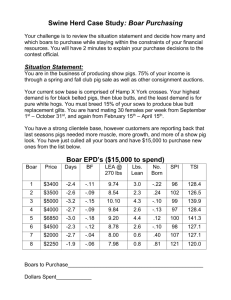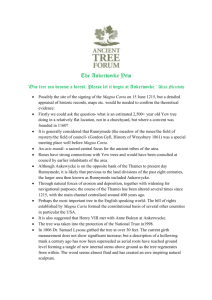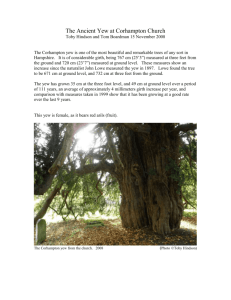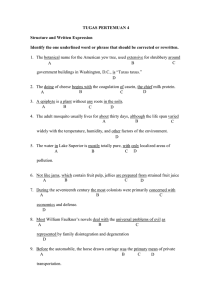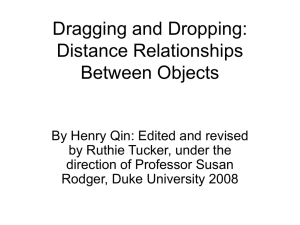A C -G E
advertisement
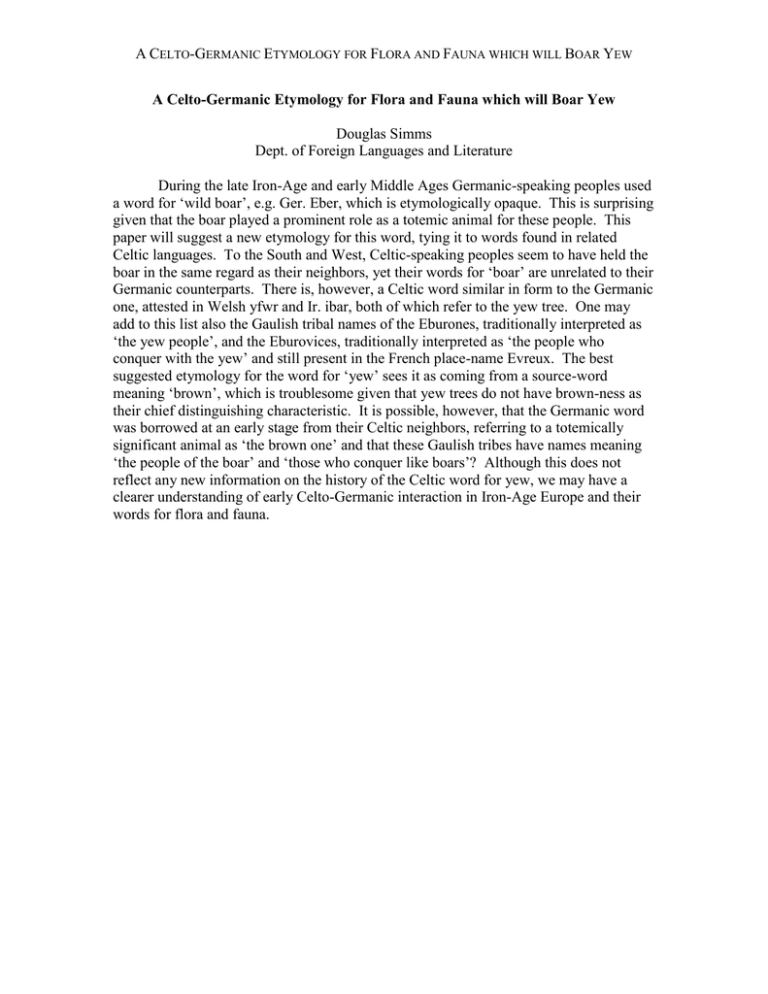
A CELTO-GERMANIC ETYMOLOGY FOR FLORA AND FAUNA WHICH WILL BOAR YEW A Celto-Germanic Etymology for Flora and Fauna which will Boar Yew Douglas Simms Dept. of Foreign Languages and Literature During the late Iron-Age and early Middle Ages Germanic-speaking peoples used a word for ‘wild boar’, e.g. Ger. Eber, which is etymologically opaque. This is surprising given that the boar played a prominent role as a totemic animal for these people. This paper will suggest a new etymology for this word, tying it to words found in related Celtic languages. To the South and West, Celtic-speaking peoples seem to have held the boar in the same regard as their neighbors, yet their words for ‘boar’ are unrelated to their Germanic counterparts. There is, however, a Celtic word similar in form to the Germanic one, attested in Welsh yfwr and Ir. ibar, both of which refer to the yew tree. One may add to this list also the Gaulish tribal names of the Eburones, traditionally interpreted as ‘the yew people’, and the Eburovices, traditionally interpreted as ‘the people who conquer with the yew’ and still present in the French place-name Evreux. The best suggested etymology for the word for ‘yew’ sees it as coming from a source-word meaning ‘brown’, which is troublesome given that yew trees do not have brown-ness as their chief distinguishing characteristic. It is possible, however, that the Germanic word was borrowed at an early stage from their Celtic neighbors, referring to a totemically significant animal as ‘the brown one’ and that these Gaulish tribes have names meaning ‘the people of the boar’ and ‘those who conquer like boars’? Although this does not reflect any new information on the history of the Celtic word for yew, we may have a clearer understanding of early Celto-Germanic interaction in Iron-Age Europe and their words for flora and fauna.
